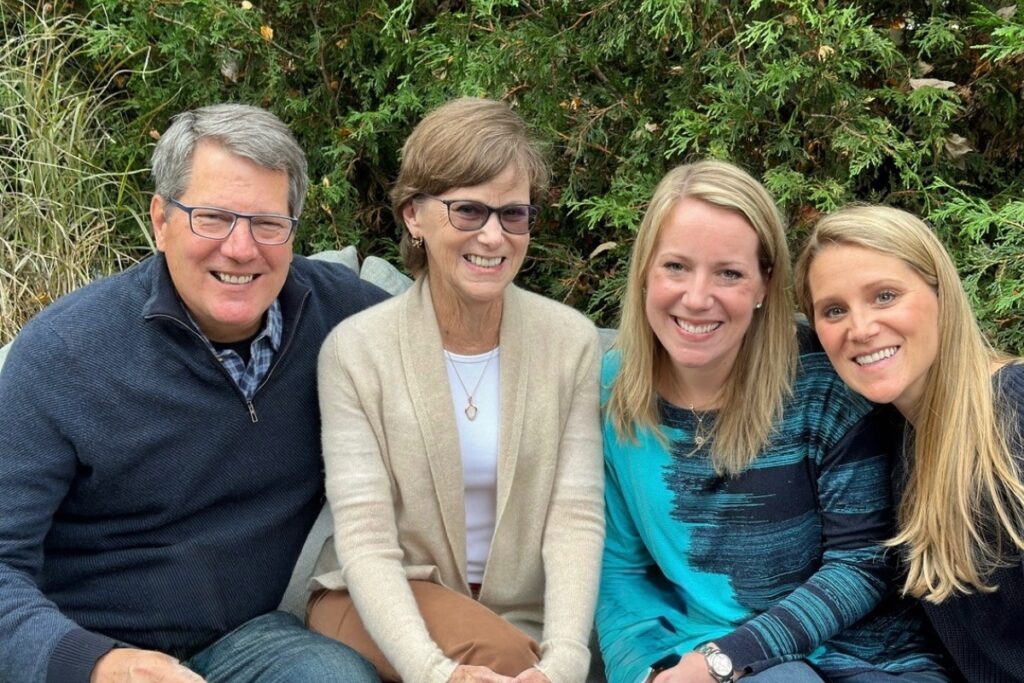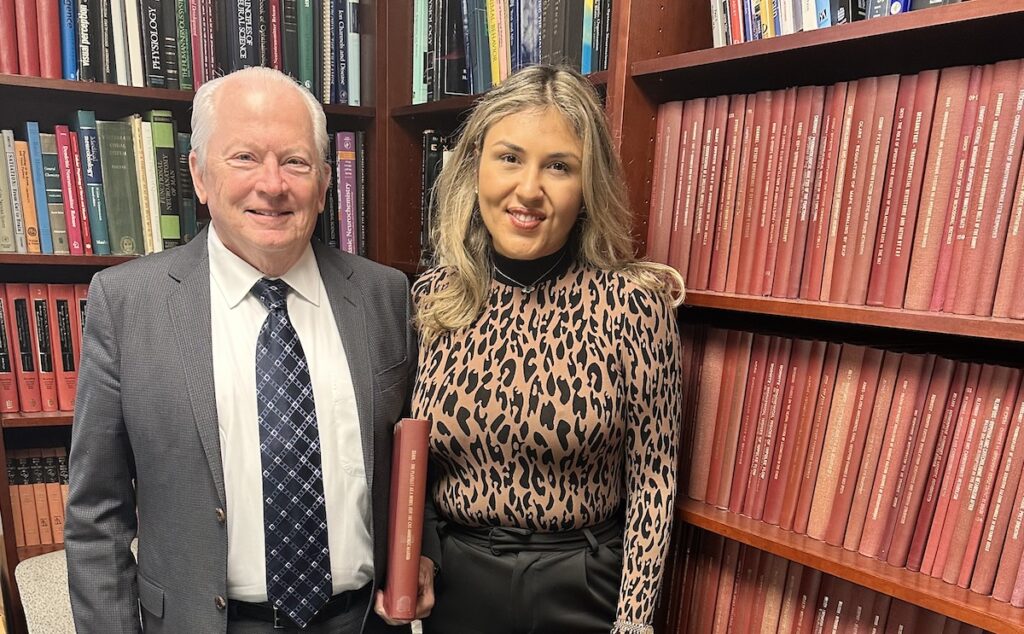When Tara Boland was diagnosed with triple-negative breast cancer (TNBC), she befriended women in her St. Louis community who shared their own experiences with breast cancer. Their stories inspired Tara to found the TaTa Sisterhood Foundation, which provides direct support to women with TNBC, shortly before she passed away from the disease in 2013. Today, the TaTa Sisterhood continues to uphold Tara’s legacy, including through a recent gift to support breast cancer research at the University of Chicago Medicine.
“Tara had gotten into the habit of chatting to the person next to her when she was in the chemotherapy chair. She would hear their stories, and some of them were pretty dire—they didn’t have jobs or didn’t know how they were going to pay rent—and she would help them. When my coworkers raised money for us, she wanted to turn around and pass it on to the people who needed it,” said Tara’s husband, Matt Boland.
For the foundation, expanding from direct support of TNBC patients to support for TNBC research was a way to honor Tara’s vision. The foundation holds community events to raise funds, including a Jimmy Buffet-themed “Margarita-ta-ville” party and a TaTa Brotherhood whiffleball tournament.
In pursuing their expanded mission, the TaTa Sisterhood Foundation was inspired to support research being conducted by Rita Nanda, MD, director of the breast oncology program at UChicago Medicine. Tara met Nanda while seeking treatment for a particular subtype of TNBC—androgen receptor-positive triple-negative breast cancer (AR+ TNBC).
TNBC, so called because it lacks expression of the three major breast cancer drug targets (the estrogen, progesterone, and HER2 receptors), is notoriously hard to treat since it does not respond to hormone therapy or the targeted, anti-HER2 drug therapies. Nanda, a nationally renowned expert in TNBC research and treatment, is focused on identifying new and better treatment options, seeking the right therapy for an individual patient.
“Tara came to UChicago Medicine to enroll in a clinical trial of the anti-androgen receptor therapy enzalutamide, which is FDA-approved for prostate cancer—a cancer which is frequently androgen-receptor positive. What we found in that trial was that a percentage of patients with AR+ TNBC benefited from this well-tolerated oral treatment,” said Nanda.
The TaTa Sisterhood Foundation’s gift will fund a correlative study of Nanda’s current clinical trial studying the effectiveness of enzalutamide with or without mifepristone, another hormone-blocking targeted agent, compared to chemotherapy. If either enzalutamide alone or with mifepristone proves to be better than chemotherapy, then patients with AR+ TNBC could have new options for treatment.
While the clinical trial is funded by the Breast Cancer Research Foundation, the team wanted to analyze a particular biomarker associated with a poor response to enzalutamide in prostate cancer patients, research that would not have been possible without philanthropy.
“We don’t know how common this biomarker is in breast cancer, or if it might also predict resistance to enzalutamide in AR+ TNBC. That’s why the work the TaTa Sisterhood Foundation is supporting is so critical—this analysis may help us identify the patients who will benefit from enzalutamide-based therapy and those who will not. As Tara had AR+ TNBC, I thought this research would be perfect to do in her memory,” said Nanda.
Funding for the correlative study not only allows the team to collect and analyze data that can help physicians refine options for patients—it also provides data to support future grant applications as Nanda’s team searches for better, and more tailored, options for those with TNBC.
“Tara wanted to help,” said Boland. “She was helped by a lot of people when she was sick, between all the surgeries she had to go through and her chemotherapy, this group of friends stepped up and continue to step up. She wanted to give back. She was someone who never lost hope.”




